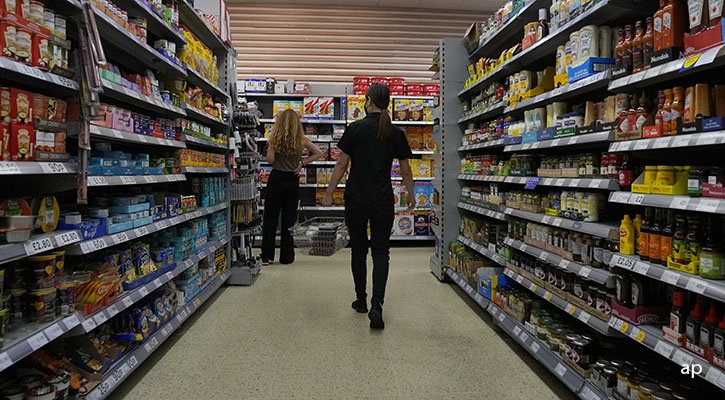
The UK's inflation rate rose in July, according to the Office for National Statistics, with the Consumer Price Index (CPI) increasing by 2.2%, from a rise of 2% in June. FactSet consensus had CPI rising by 2.3% in July.
The modest rise in the rate of inflation had also been expected by the Bank of England, which cut interest rates for the first time in four years on August 1.
Rather than indicating an increase in goods and services prices, the higher July number reflects unfavourable comparisons with gas and electricity prices in July 2023. Weighing on last month's inflation print were an easing in hotel and food price rises after a busy summer of sport and music events. Food inflation was 1.5% higher in July compared to a year ago.
While CPI is now above its official 2% target, interest rates are still expected to be cut further towards the end of this year. The timing is now uncertain, however.
Core inflation, a key concern of the Bank, fell last month to 3.3%, down from 3.5% in June, slightly below FactSet expectations. The measure, which excludes more volatile energy, food, alcohol and tobacco prices, is considered a more reliable way of gauging how embedded inflationary pressures are in the economy.
And services inflation also fell, from 5.7% in June to 5.2% in July, lower than analyst and Bank of England expectations.
Will The BoE Cut Rates in September or November?
Experts greeted today's reading with mixed feelings. Some argue the chances of a September rate cut may have increased even as financial markets price in November as the next likely date for a cut. Others think the Bank remains on its current cautious path. They include Aaron Hussein, global market strategist at J.P. Morgan Asset Management.
"We […] think it's unlikely the Bank will follow up its August cut with a cut in September," he says.
"Absent any material shock to growth, this cutting cycle is likely to be gradual with a quarterly cadence most likely. Investors banking on imminent rate cuts will therefore be disappointed."
Along with this latest inflation data, recent numbers showing a fall in unemployment and moderating wage growth "are unlikely to give enough evidence to the MPC to cut interest rates again in September, with the next cut expected at the meeting on 7 November," says Joaquin Thul, economist at EFG Asset Management.
The Bank forecasts a rise in CPI inflation from its current level of 2% to about 2.75%. This is then expected to fall back in 2025 and 2026 as the "restrictive stance" of monetary policy continues to have an impact. CPI remains above the 2% target in a year's time in all of the Bank's 2025 inflation forecasts, before falling below target in 2026.
Financial markets, as indicated by overnight index swaps, are currently suggesting interest rate cuts of a quarter point in both the November and December meetings, which would take the base rate to 4.5%.



























